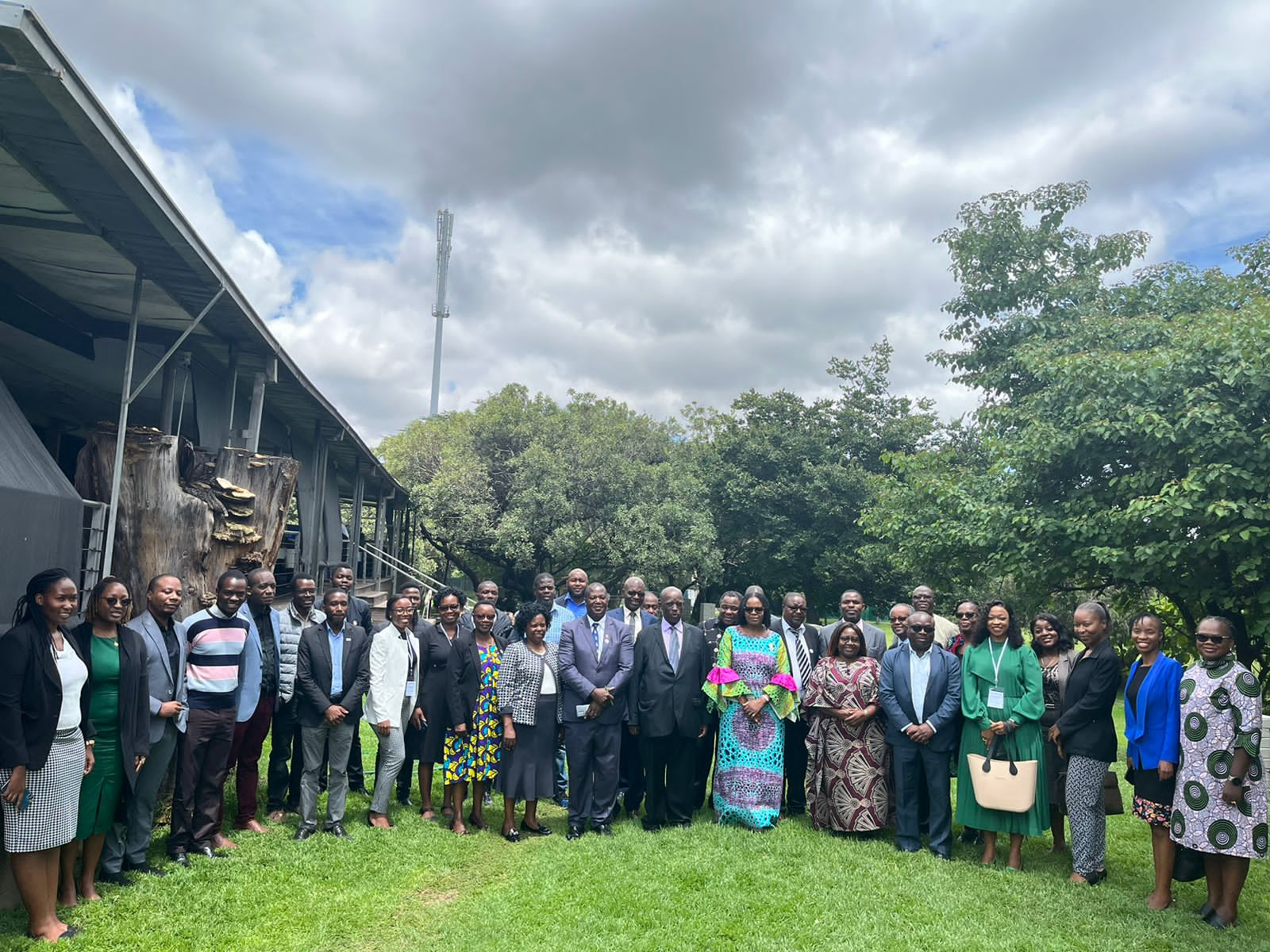Genome editing is one of the new and emerging technologies that falls under the biotechnology umbrella, the application of which can potentially enhance the agricultural sector through improved crop resistance to pests and adverse environmental conditions, a senior government official has said.
Professor Fanuel Tagwira, the Permant Secretary for the Ministry of Higher and Tertiary Education, Innovation, Science and Technology Development made the remarks at the African Union Development Agency (AUDA-NEPAD) Centre of Excellence in Science, Technology. and Innovation engagement workshop with the Government of Zimbabwe on Genome Editing that kicked off in Harare today.
He said the National Biotechnology Authority is an agency under the Ministry of Higher and Tertiary Education, Innovation, Science and Technology Development with a mandate to support and manage biotechnology research, application and development in Zimbabwe within the health, agriculture. environment and industry priority areas. It is also the National Competent Authority on all matters pertaining to biotechnology and biosafety within Zimbabwe.
“Genome editing is one of the new and emerging technologies that falls under the biotechnology umbrella, the application of which can potentially enhance our agricultural sector through improved crop resistance to pests and adverse environmental conditions, as well as a general improved agricultural productivity. Genome editing is not limited to application in agriculture as it can be applied in the medical and other sectors as well. In line with Zimbabwe’s current drive under Education 5.0, it is time for Zimbabwe to consider the use of latest technologies, such as genome editing, to revive our industries and hence our economy. We must use resources at our disposal to align with the industrial revolution.
“It is imperative for us as a nation to have home-grown solutions to boost our economy. To this end, the NBA is currently engaging institutions of higher learning, such as the state universities that established innovation hubs, to further support and promote innovation and industrialization. At the moment, the NBA has set up a Genomics Centre at the University of Zimbabwe Innovation Hub, that houses a state-of-the-art genome sequencing unit, that will negate the need for researchers to send their samples for sequencing outside the country,” Professor Tagwira said.
He added that the adoption of any new technology must be accompanied by rigorous risk assessment procedures, coupled with a robust regulatory framework that will ensure the safety of human, animal, and the environmental health during the application of the technology.
The NBA will conduct the necessary risk assessments and regulatory activities and play a big role in raising awareness and educating policy makers and the public on genome editing technology.
This engagement with the AUDA-NEPAD will allow stakeholders to gain more knowledge from the experts in the field, while also identifying scientists, experts and other important actors that will help push this technology forward and grant the opportunity to understand genome editing better since with better understanding comes better-informed decision-making.
Speaking on the same occasion, Deputy Secretary for Policy, Analysis, Coordination and Development in the Office of the President and Cabinet, Mr Willard Manungo said Zimbabwe is one of the pioneers of Genome Editing which has come at an opportune time as it dovetails with the country’s current development trajectory as espoused in Vision 2030. The Vision embeds Information and Communication Technology (ICT) across all national development strategies as an enabling tool for development.
It prioritises promoting innovation, entrepreneurship, equitable development and prosperity for all, under a market economy that leverages on Zimbabwe’s natural resources and abundant human skills. An outstanding milestone achievement in innovation is the commercialisation of the indigenous Marula or Mapfura fruit value chain in Mwenezi’s Rutenga Growth point. The indegonous fruit has bi-products such as wine, cosmetic oil, edible oils, stock feed and juices.
Mr. Manungo said the Government is also investing in creating an enabling environment for science, technology and innovation through development of Innovation Hubs , ICTs infrastructure development and expansion such as the National Data Centre and the High Computing Performance Centre at the University of Zimbabwe. The President has noted that Innovation hubs have turned into game- changers, with some having the capacity to produce hydrogen for energy and lithium ion batteries that are key in the transformation and industrialisation of the country.
“Further, the Government has prioritised Human Capital Development and Innovation with emphasis on Science, Technology, Engineering and Mathematics (STEM) subjects. This supports home-grown innovations in all areas of the economy, including agri-business amongst the Youth. For instance, Zimbabwe , in conjunction with development partners, including AUDA-NEPAD Centre of Excellence in Science, Technology, and Innovation, is broadening climate change mitigation and adaptation activities to include critical elements such, smart agriculture including research and development in draught and disease tolerant crop, gene and livestock varieties to enhance food security and nutrition.
“In addition, Government is implimenting Education 5.0, centred on equiping graduates with skills that empower them to become innovative towards societal development through transformative science and technology knowledge application that delivers goods and services. It is envisioned that innovation will bridge the gap between knowledge produced in lecture rooms, laboratories and industrial production. Success stories include sanisisters, PCR test kits production at state universities during the COVID- 19 pandemic,” he said.
National Biotechnology Authority CEO and Registrar, Dr. Deckster T. Savadye said the targeted engagement with senior government officials is to secure buy-in towards an increased uptake and scaling-up of modern biotechnology in general, and genome editing in particular, towards industrialisation for inclusive development outcomes.
“The implementation approach would require providing policy and capacity-strengthening support in genome editing in agriculture to AU Member States. Intervention services would include expert consultations with African governments and research and development institutions/universities, in-country and regional training workshops, and knowledge- and experience-sharing opportunities through seminars and linkages within and outside the continent
